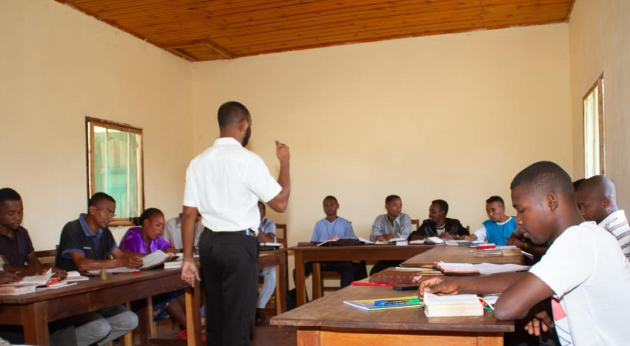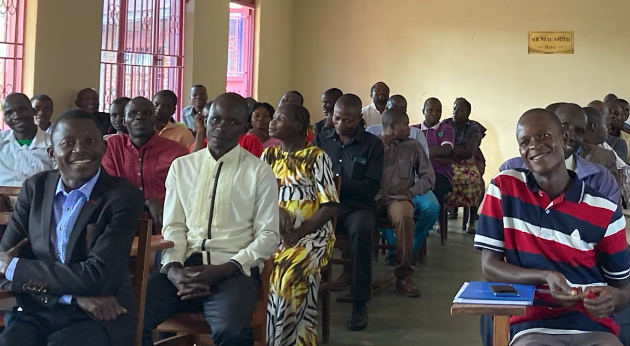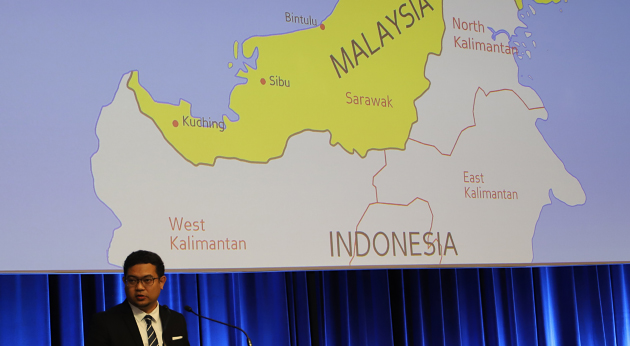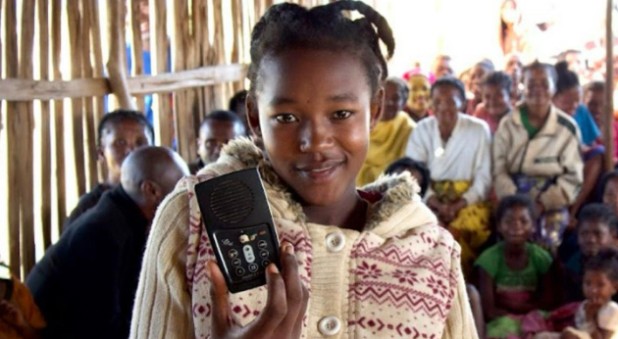Theological colleges, schools, health centres and biblical resources are the fruit of rich partnerships with Anglican dioceses around the world.
The Synod’s Mission Hour for 2023 shared stories that told of the Sydney Diocese’s service and support worldwide, particularly in areas of great gospel growth and great poverty.
Phenomenal church growth in Madagascar
“The south of Madagascar has experienced tremendous growth,” said the Rev Berthier Lainirina, provincial secretary for the Anglican Church of the Indian Ocean.
Madagascar is a great example of the power of long-term partnership and co-operation, with a relationship first established between the two dioceses in 2009. When the south Madagascan Diocese of Toliara experienced a terrible famine in 2021, Anglican Aid were quick to send relief to assist more than 200 families in the area.
 Above: The Rev Berthier Lainirina teaching at St Patrick’s college in Madagascar
Above: The Rev Berthier Lainirina teaching at St Patrick’s college in Madagascar
“We preached the gospel there and did food distributions.There were many people converted to Christ,” Mr Lainirina said. “In less than six months, we were able to plant more than 20 churches… and we have baptised over 2000 new Christians.”
The big challenge the Diocese of Toliara now faces is the lack of human resources and trained Bible teachers to shepherd the young flock. To help, the Church Missionary Society (CMS) is sending its first missionaries to the diocese. Adam and Avril Friend will head off with their two children early next year, and are excited to work with Malagasy locals, learn from them and support them.
“Us going does feel like a great expression and affirmation of the strengthening partnership between Sydney and the Toliara Diocese,” Mr Friend said. “We’re excited in particular to join them, as we’ve gotten to know them, we’ve gotten to know how wise and gospel-hearted they are.”
Resourcing the church in DR Congo
In the Democratic Republic of Congo, only 3 per cent of 10-year-olds can read. It is the fifth poorest country in the world, and home to 100 million people.
The Anglican Church of Congo runs more than 1000 churches, 700 schools and 90 health centres. A partnership began in 1986 and deepened in 1992 when Sydney sent the late Peter Dawson as a missionary bishop to pioneer the Diocese of Kindu, in a remote central part of the country.
 Above: Bible College in the DRC
Above: Bible College in the DRC
Under God’s hand the evangelical Berea Bible College was established in 2005 by Bishop Malcolm Richards during the second period he and his wife Elizabeth spent as missionaries in the country, with help from generous donors, CMS Australia and Anglican Aid. Since then, Anglican Aid has continued to help support the work of the Congolese church by renovating schools and supporting the Bible college.
“The standard of education in my diocese is very low, so you can help us improve our schools,” said the Bishop of Kindu, Masimango Katanda. “I am very grateful and thankful for Anglican Aid for the way we worked together in training new church leaders.
“We have a vision to improve our education system so that we can contribute to train the future leaders of this country.”
Equipping Malaysia’s Bible teachers
A deep gratitude was expressed from the dioceses of Kuching and Sabah in Malaysia for the generous relationship with Sydney for the past 70 years that has resulted in the training of many gospel workers.
Moore College’s Preliminary Theological Certificate has proved to be an invaluable resource for training Malaysian ministers. In 2012, a formalised agreement between Moore College and Anglican Training Institute in Sabah saw the PTC become a core part of the college curriculum, with translations into Bahasa Malaysia and Chinese.
 Above: Rev Wilston Trin speaks at Synod Mission Hour
Above: Rev Wilston Trin speaks at Synod Mission Hour
“We are beginning to use PTC as part of our training in the Diocese of Kuching,” added the Rev Wilston Trin, who serves in that diocese. “I would like to thank Moore College and Sydney Diocese for your generosity and partnership in the gospel, for your heart for mission in Sydney and beyond.”
Feature photo: Anglican Aid at work in Madagascar villages
























